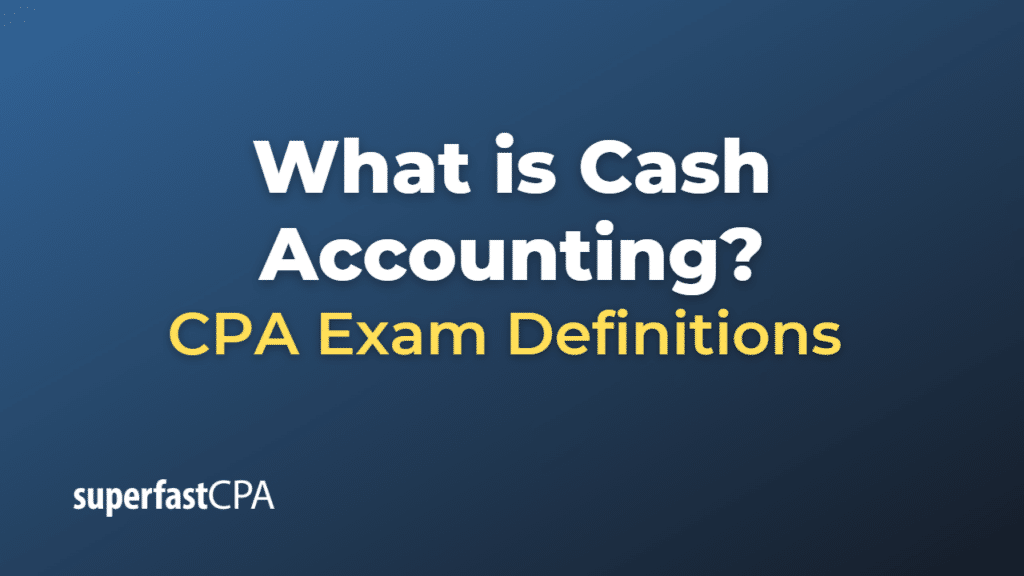Cash Accounting
Cash accounting, also known as the cash basis of accounting, is an accounting method in which revenues are recorded when cash is received, and expenses are recorded when cash is paid out. This method is commonly used by small businesses, sole proprietorships, and individuals because of its simplicity and ease of use.
In cash accounting, financial transactions are recorded only when there is an actual exchange of cash, regardless of when the goods or services were provided or consumed. This contrasts with the accrual basis of accounting, in which revenues and expenses are recorded when they are earned or incurred, regardless of when the cash is exchanged.
Here are some key features of cash accounting:
- Simplicity: Cash accounting is easier to maintain and understand compared to accrual accounting. It does not require complex accounting adjustments or the tracking of accounts receivable and accounts payable.
- Cash Flow Tracking: Cash accounting provides a clear picture of a business’s cash flow, as it directly reflects the inflows and outflows of cash during a specific period.
- Timing Differences: Cash accounting can result in timing differences between when income is earned and when it is recorded, as well as when expenses are incurred and when they are recorded. This can lead to inconsistencies in financial reporting and decision-making.
- Not GAAP Compliant: Cash accounting is generally not compliant with Generally Accepted Accounting Principles (GAAP) and may not be suitable for larger businesses or those required to follow GAAP or International Financial Reporting Standards (IFRS).
While cash accounting is simple and easy to maintain, it may not provide an accurate representation of a business’s financial health in the long run due to its focus on cash transactions. For this reason, accrual accounting is often preferred for businesses that need a more comprehensive and accurate picture of their financial performance.
Example of Cash Accounting
Let’s consider a small freelance graphic design business, “Designs by Alex,” to illustrate cash accounting.
During the month of June, Alex completed three design projects for various clients. The invoiced amounts and payment dates for these projects were as follows:
- Project A: Invoiced on June 10th for $2,000; payment received on June 25th
- Project B: Invoiced on June 15th for $1,500; payment received on July 5th
- Project C: Invoiced on June 20th for $1,000; payment received on June 30th
In addition to the project revenues, Alex had the following expenses during June:
- Rent payment for office space: $500, paid on June 1st
- Software subscription: $100, paid on June 15th
- Internet bill: $75, paid on June 10th
Using the cash accounting method, Alex would only record the revenues and expenses when the cash is received or paid. Here’s the breakdown of Alex’s cash accounting records for June:
Revenues:
- Project A: $2,000 (received on June 25th)
- Project B: $0 (payment received in July, not June)
- Project C: $1,000 (received on June 30th) Total Revenues: $3,000
Expenses:
- Rent payment: $500 (paid on June 1st)
- Software subscription: $100 (paid on June 15th)
- Internet bill: $75 (paid on June 10th) Total Expenses: $675
June Net Income (using cash accounting) = Total Revenues – Total Expenses
June Net Income = $3,000 – $675
June Net Income = $2,325
In this example, the cash accounting method only considers the cash received and paid during June. The revenue from Project B is not recorded in June, as the payment was received in July. This approach simplifies Alex’s bookkeeping and provides a clear picture of cash flow. However, it may not accurately represent the business’s financial performance over time, as it doesn’t account for the timing differences in revenue and expense recognition.













